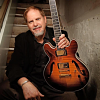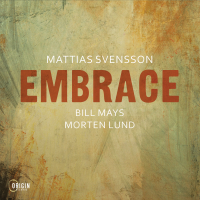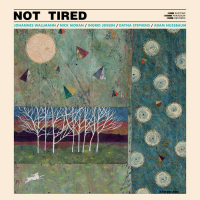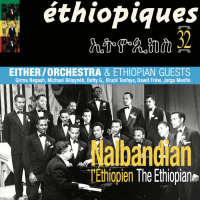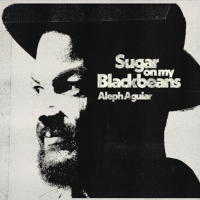Home » Jazz Articles » Album Review » Gil Evans Remembered: Gil Evans Remembered (Live At The ...
Gil Evans Remembered: Gil Evans Remembered (Live At The Cutting Room, NYC)
How did Evans inspire them? He had moved slowly, and controversially, from the precision writing of "Sketches of Spain" music with Miles Davis to a looser, wilder freewheeling sound. John Surman said recently,: "Having been lucky enough to have toured a few times with Gil's band, I have often wondered exactly what he was doing to make the band work as well as he did. It certainly wasn't anything that he said—I can hardly recall him saying anything much about the music. I guess he just wanted us to listen to each other and develop the music together as we felt it."
Lew Soloff also talked about Evans as if he was talking about Duke Ellington. He said Evans thought about the individual musicians rather than just the instruments. "What Gil liked to do was to think of the person. He didn't think of the tuba he thought of Howard Johnson. He didn't think of a saxophone sound, he thought of George Adams." Soloff said that Evans wanted individual sounds. "He wanted the particular people he hired to sing this thing together in their very own individual manner."
Dave Bargeron, talking to Evans' biographer, said: "This is not like free jazz was in the late '60s. It's not that. This is relating in your own personal way to whatever the core of this is that's going on. That's quite different. There are some organizing elements of this that pull you in and help you along. There is usually a mood that's played on, if nothing else. There are usually chord changes, there is usually some kind of set context that the tune is about. There are organizational factors that are a step more organized than just playing free jazz. You're encouraged to play as freely as you can against this core. That's the deal."
There are some important voices missing on the album: Hiram Bullock, Adams, Howard Johnson, David Sanborn, all dead. Other prominent jazz musicians flitted into the club occasionally: Johnny Coles, Marvin "Hannibal" Peterson, Gil Goldstein.
They came to play the music. Two of the pieces here are by Evans; one by Jaco Pastorius who worked with the band occasionally; one by Charles Mingus; two by Jimi Hendrix and "Nana" by Brazilian composers Moacir Santos, Mario Telles and Yanna Cotti.
The lemony alto sound of Chris Hunter dominates "La Nevada," together with Dave Stryker and the bass settings of Mark Egan. The simple but rich theme is inspiring. The noirish, slightly sinister, opening to "London" is played by Pete Levin and backed by the deep brass of Bargeron and Tom Malone. The build-up includes Stryker's guitar. This is probably the best (and longest) arrangement on the album. The French horn solo of John Clark gives cool relief. There is intense drama in the way that the ensemble builds behind the horn. The whole arrangement has a profound, pungent, inexorable beautiful shape.
The noble Mingus theme "Goodbye Pork Pie Hat" was colonized by Evans. The introduction is played by Levin. He is too good, too professional, lacking the tentative feel of Evans' piano playing. The solo by Soloff is a reminder of how frequently the great trumpeter played with the band. The tenor solo by Alex Foster has faint pointers in the direction of Adams, but is wholly Foster. The ensemble playing including the deep brass graces the melancholy beautiful composition and arrangement.
Hendrix had a profound impact on Evans. Evans said that he heard the wail and scream of the blues in the music of Hendrix. Pieces by Hendrix became an essential part of the band's book. The excoriating solo from Hunter on "Stone Free" has the edgy quality that Evans loved in Hunter's playing, suiting exactly the Hendrix piece.
The Danny Gottlieb and Beth Gottlieb percussion team opens "Nana." Evans discovered the theme on a Brazilian album by a singer called Nara Leão. It is easy to see why Evans and the band chose to use this powerful theme and Soloff enjoys soloing in his go-for-broke playing over the weighty rhythm. The clarity of the recording shows the complexity of the arrangement.
Those blessed enough to meet up with the Monday Night Band, live, will remember the sensation and leaps of pleasure as the band pulled their diversity triumphantly together to realize the power and beauty of their playing. There is enough of that glistening in this beautifully recorded album to whet the memory.
Track Listing
La Nevada; Goodbye Pork Pie; Teen Town; London; Little Wing; Nana; Stone Free.
Personnel
Gil Evans Remembered
band / ensemble / orchestraDave Bargeron
tromboneMark Egan
bassAlex Foster
saxophoneBeth Gottlieb
percussionDanny Gottlieb
drumsChris Hunter
flutePete Levin
keyboardsTom Malone
tromboneDave Stryker
guitarAlbum information
Title: Gil Evans Remembered (Live At The Cutting Room, NYC) | Year Released: 2024 | Record Label: Dot Time Records
Tags
About Gil Evans Remembered
Instrument: Band / ensemble / orchestra
PREVIOUS / NEXT
Support All About Jazz
 All About Jazz has been a pillar of jazz since 1995, championing it as an art form and, more importantly, supporting the musicians who make it. Our enduring commitment has made "AAJ" one of the most culturally important websites of its kind, read by hundreds of thousands of fans, musicians and industry figures every month.
All About Jazz has been a pillar of jazz since 1995, championing it as an art form and, more importantly, supporting the musicians who make it. Our enduring commitment has made "AAJ" one of the most culturally important websites of its kind, read by hundreds of thousands of fans, musicians and industry figures every month.










